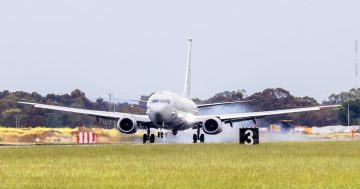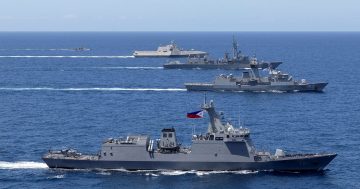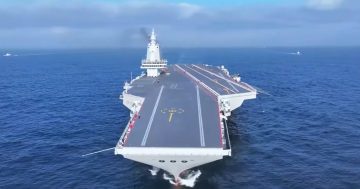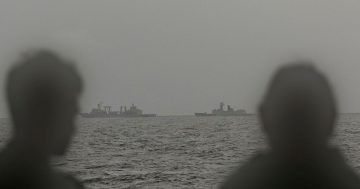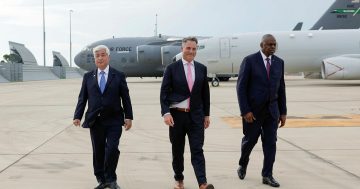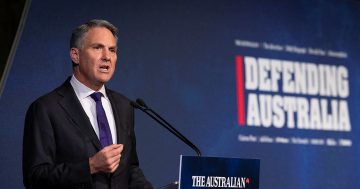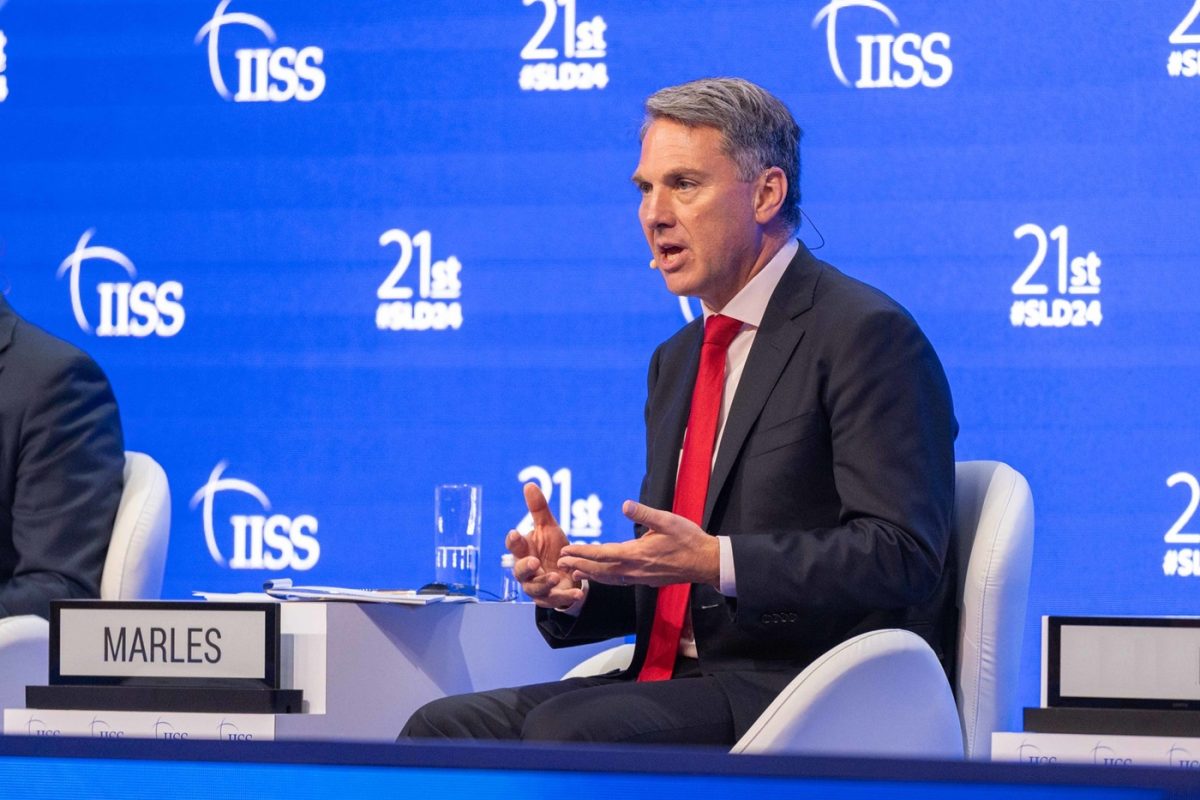
Mr Marles takes questions following his keynote address on 1 June. Photo: IISS.
Defence Minister and Deputy Prime Minister Richard Marles has used the occasion of the annual IISS Shangri-La Dialogue defence summit of Asian and wider regional defence and foreign policy leaders to again accuse China’s military of unprofessional conduct towards other nations in the South China Sea and in waters around Korea and Japan.
Held in Singapore and hosted by the International Institute for Strategic Studies (IISS), the summit has become one of the leading conferences of its type in the world. Not only are there large scale plenary sessions and keynote speeches, but many bilateral meetings and smaller sessions covering more specific subjects are also held.
Mr Marles said the world was in a new era of strategic competition that is reshaping the world and the region, and said it had been framed in different ways including east versus west, north versus south, or democracy versus autocracy.
“These frames obscure more than clarify,” he said.
After reflecting on current conflicts in Gaza and in Ukraine, he pointed out that, as China steps up to a larger role as a global power, it must accept that there will be greater scrutiny on the way it uses its strength and which countries it chooses to partner with.
“But the deeper question is the implications of China’s strategic partnership with Russia given its current malign and violent path,” he said.
“Vladimir Putin’s actions have made Russia a pariah. So China’s support for Russia raises important questions about the role it intends to play as a global actor.”
Mr Marles said the rest of the world was paying attention to China’s behaviour and the signals that sends, in particular its recent interactions with Philippine forces in the South China Sea that go against the United Nations Convention on the Law of the Sea (UNCLOS).
“Actions by Chinese vessels in the West Philippine Sea, such as the use of water cannons and the ramming of Philippine vessels are a serious escalation of tensions and inconsistent with UNCLOS and the final and binding 2016 South China Sea arbitration ruling,” he said.
He also said there was concern over China’s People’s Liberation Army’s behaviour towards Taiwan, and of other nations in the region including Australia.
“PLA exercises that practise attacks and blockades of Taiwan do not inspire confidence that China prioritises – or is planning for – a peaceful settlement to the status of this island and its 22 million people,” he said.
“The Australian Navy has also experienced recent unsafe and unprofessional behaviour by the PLA Navy and the PLA Air Force,” he added.
“The activation of sonar while Australian naval divers were in the water in the East China Sea in November and the release of flares in the path of a naval helicopter last month posed a serious risk of injury to our personnel, while they were enforcing UN Security Council sanctions against North Korea.”
Mr Marles held bilateral talks with his Chinese counterpart on the sidelines of Shangri-La, but initially he wouldn’t be drawn on the detail of those discussions.
“I’m obviously not going to go into the details of the meeting that I had with Admiral Dong,” he told SKY News.
“But it was … it was a very frank conversation,” he offered. “Obviously, we have seen some unsafe incidents which were both unsafe and unprofessional.”
Philippine President Ferdinand Marcos Jr warned of “dangerous consequences” if Chinese naval and militia vessels continued to challenge Philippine vessels in Philippine territorial waters.
“If a Filipino citizen is killed by a wilful act, that is, I think, very, very close to what we define as an act of war,” he said.
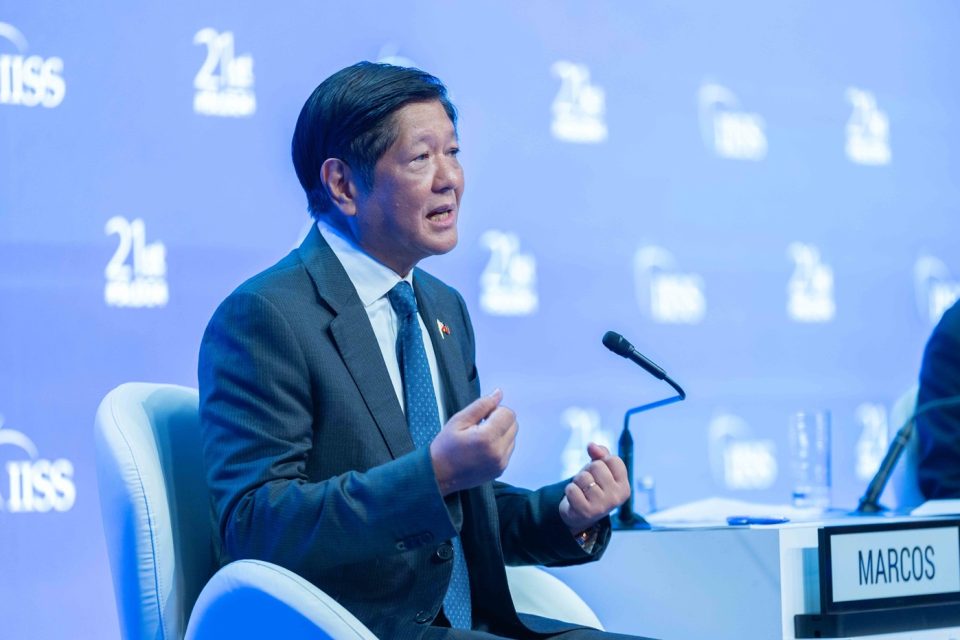
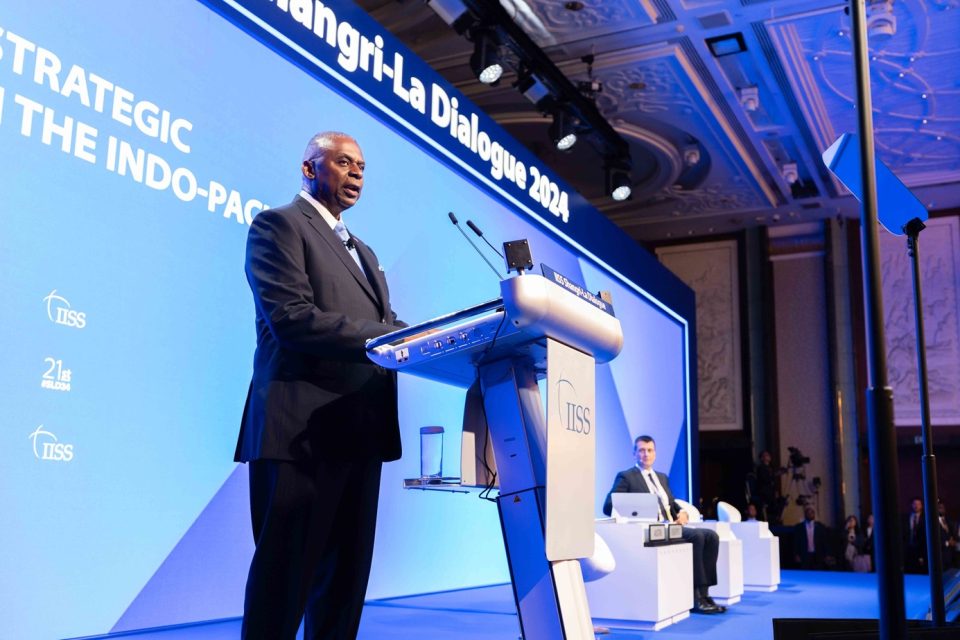
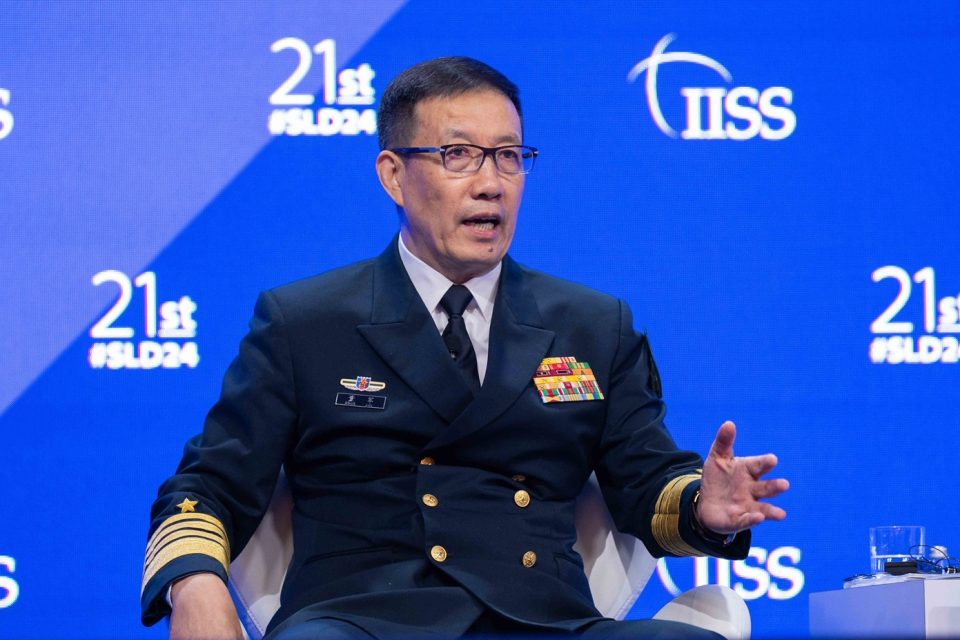
US Defense Secretary Lloyd Austin agreed, saying every country has the right to enjoy its own maritime resources.
“The harassment the Philippines has faced is dangerous, pure and simple,” he said. “We all share an interest in ensuring the South China Sea remains open and free.”
In his own speech to the conference, Minister Dong accused Taiwan of “pursuing separation in an incremental way”, and blamed external forces – i.e. the US – of maintaining “illegal” official contact with Taiwan.
“What they are doing is to embolden Taiwan independence separatists in an attempt to contain China with Taiwan,” he said, maintaining that Taiwan is an internal matter for China.
“Anyone who dares to separate Taiwan from China will only end up in self-destruction,” he said.
Minister Dong also accused the Philippines of breaking bilateral agreements and promises, and of making “premeditated provocations and created false scenarios to mislead the public”.
“China has exercised great restraints in the face of such infringements and provocations,” he said.




